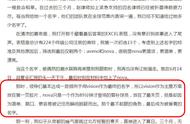We live in an age when there is a lot of talk about robots equipped with artificial intelligence taking over the jobs now performed by human beings.
在我们生活的时代中,有很多关于人工智能机器人接管当前由人类完成的工作的讨论。
artificial intelligence: /ˌɑrtəˈfɪʃəl ɪnˈtɛlədʒəns/ 人工智能

Indeed, there have been many huge strides made in machines helping humans with daily tasks. Spell-checking programs help editors avoid typographical mistakes. Autopilot programs help pilots avoid “pilot error”, which can be fatal.
的确,在帮助人类完成日常事务方面,机器已经取得了巨大的进步。拼写检查程序能够帮助编辑避免排版错误。自动驾驶程序可以帮助飞行员避免致命的“飞行错误”。
typographical: /ˌtaɪpə'ɡræfɪkl/ 印刷上的,排字上的
fatal: /ˈfetl/ 致命的
Still, computerized spell checks aren’t always good at detecting the incorrect use of a correctly spelled word. Airlines have had to retrain human pilots who became too dependent on having machines doing the flying — a dependence that can cause disaster.
不过,计算机拼写检查并非总能很好地检测出拼写正确的单词的错误用法。航空公司不得不重新培训过于依赖机器飞行的飞行员,因为此种依赖可能会造成灾难。
So, too, it goes with translation and interpretation, those most delicate of language arts.
而口笔译这门最为精妙的语言艺术也是如此。

It’s easy to make mistakes. When I was in a college summer program in Mexico, we used to laugh at English-speaking students who would use the word embarazada to mean embarrassed. It’s true that they sound alike. But what the students were saying was that they were pregnant.
犯错误很容易。我在墨西哥参加大学暑期项目的时候,我们常常嘲笑说英语的学生,他们会用西语embarazada这个词来表示“尴尬”(embarrassed)。两者听起来很像。但学生们所说的是“*”(embarazada)。

When my wife and I went to dinner at a nice restaurant in Shanghai, I noticed with some discomfort that “husband” was on the menu. I never learned what exactly that was but, not wishing to tempt fate, I ordered something else.
记得我和妻子去上海一家不错的餐厅吃饭时,我注意到“丈夫(husband)”出现在菜单上,我很不安,不知道那到底是什么,但我不想冒不必要的险,就点了别的东西。
















